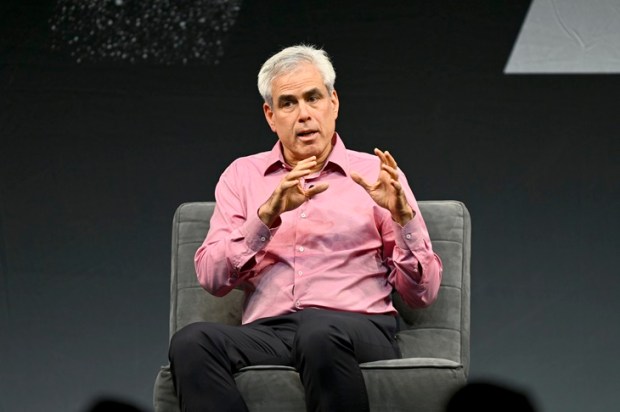‘What is the difference between an hourly rate and a salary Dad?’ asked the inquisitive teenager. His quiet and thoughtful father explained it this way: ‘An hourly rate is paid for completing a defined task in a certain time; a salary is when you are paid to get the job done.’ My father then went on to explore what it might mean to be in a trade and being in a profession. The former were normally on an hourly rate, and the latter on a salary.
It is very clear in my mind that my father believed both were very honourable pathways. He had started on the factory floor after the second world war and finished as a senior tax accountant. He believed that all the pathways in between were good if done in good character for the good of the people involved.
Which leads me to ask, has teaching in NSW redefined itself from being a profession to being a trade? It seems that way to me. It also seems the shift has been made unwittingly by our leaders. My questioning of this has nothing to do with suggesting one vocational mode is more noble than another. My concerns are that being in a ‘trade frame of mind’ when a ‘professional frame of mind’ is needed, or vice-versa, makes the work unfit-for purpose.
Understanding teaching as a profession is often addressed in education foundations subjects in teacher training courses. The narrative about the uniqueness of teaching as a profession has been fairly standard in the past. The explanation goes along the lines that teachers face more interpersonal interactions in a day than any other work (imagine having 24 children or youth of any age in your lounge room for six hours to understand this).
To keep this commitment manageable, the structure of life is now commonly split into four ‘seasons’ called terms (it used to be three terms). These terms have different dynamics, and each one has separate demands. The first term is about establishing working relationships. The second term is a test to see if learning is happening. The third term is a time for deeper exploration (and when in leadership, preparing for changes the following year). The fourth term is like getting onto a Billy Cart and holding on until you reach the end, climb off, and make sure everything is intact.
What helps this shifting intensity is that there are student-free times of rest and preparation periods between each season. In my experience, the teachers who have been most stressed are those who do not prepare well over these breaks. They never catch up during term because of the unpredictability of engaging with students and their families while working through the teaching programs is enough work on its own. The shorter term breaks were given to avoid that in-term pressure of relating to students and families while instructing and teaching the curriculum. That is why, technically, there is currently only four weeks annual leave which fall during the longer summer break.
Now it seems that NSW has abandoned that understanding and teachers have become tradies. Conceptualising a 9am – 3pm workday during term is a fantasy. Do the leaders really think this will improve the poor instruction that has seen student results regress over the last decades? These leaders have obviously never had responsibility for a school – for example, who could dream of only one meeting per week for one hour when supporting and managing multiple departments and faculties? Plus, co-curricular activities that build a community of belonging are essential for deeper cooperative and safe relationships, but cannot fit easily into this proposal. How are they to be managed within this new structure? Is overtime the next step?
I remember when Julia Gillard sought to bring in a standard 38-hour week for all workers. When my teachers brought the idea to me, I said I would support it if they were prepared to work those hours onsite in all but their four weeks annual leave. And if they were not going to work those hours at school, then they would need to complete a time sheet each fortnight indicating what they had done during what times, when working out of school. They decided their present arrangements were better.
I once inherited a teaching group that almost literally ran out at 3pm with the students. I asked the leaders, ‘How do we have ongoing discussions with our teams if no one is here? How do teachers and parents have those important informal chats and celebrations when there is no one to talk to?’ We talked this through with the staff and found a better balance.
Teachers who care for students are enlivened when what they offer is well received. That includes the ‘extras’ in and out of the classroom where students learn that they are being respected as human beings. The excursions, sports teams, musicals, service activities, and various interest clubs all bring the school to life. Without them, schools become institutions, or knowledge factories. They change from being places of attention and become places of detention.
I am amazed that when productivity in this country is going backwards in so many fields of endeavour that this proposal has been agreed to. Students were harmed unnecessarily during the Covid lockdowns. Those who were already most vulnerable have been the most harmed. This will add to the harm of the most vulnerable.
My strong suggestion – and no, I do not have ultimate proof – is that it is the same selfish adults who cornered state leaders into school lockdowns who are the same selfish people driving this agenda. I would love to see what they propose for monitoring what work must be done in the student-free breaks (i.e. not the 4 weeks annual leave). I have not seen or heard anything of this nature.
Yet there seems to be the utterly naïve assumption that these kinds of conditions will attract better teachers! That is a mind-numbingly simplistic fantasy. If people come into teaching because of these conditions, they are looking for a lazy, well-paid daily and yearly routine. I’ve seen those people. They tend to be the ones who then run a business on the side, which is their real passion. Their teaching becomes highly compromised.
Here is another real-life example. A senior teacher (a head of a sub-school) was going away for a full break. We had to have many discussions about what he would need to achieve before leaving so that the next term would start well in his section of the school. We achieved some things but some of us had to pick up his slack as the term was beginning.
What we need is people called to journey alongside the people we call students. These kinds of people find instruction a creative challenge in which they want to engage. They love teaching because it provides the opportunity to see a young person grow, to mature. They want to be paid to do the job, not count the hours.
What is hindering people like this applying? Here is a sample list constructed from my experiences. They are told they cannot discipline students, nor can they implement consequences for bad behaviour (that language is not even allowed in some places). They are told to distract the child and ‘use better language’. But self-discipline is only learnt in a disciplined context (not harsh, but disciplined; not authoritarian, but authoritative). There is no common mind about what is good for children and youth. School leaders and parents can be set against each other in pursuit of relativistic ethics, competing ethnic traditions, and identity wars. There is no certainty on what information and skills are to be given to students, and so competency is measured by experiences that are had, and responses to those experiences. Students can (and do regularly) graduate without knowing enough information to think critically, even if they have been through ‘critical thinking’ lessons (an expert knows more than others). Truth is said to be a personal construct, and thus the common good as experienced at school is an omelette splattered on a plate of disjointed teaching within a tumult of different relational expectations. The review of teachers in such a haphazard environment is therefore meaningless, regardless of the outcomes of their teaching.
Perhaps the NSW Premier and Education Minster could school the unions in these realities? That would be a refreshing alternative to this apparently socialist sop to the power brokers in this beautiful, but bruised profession.

























